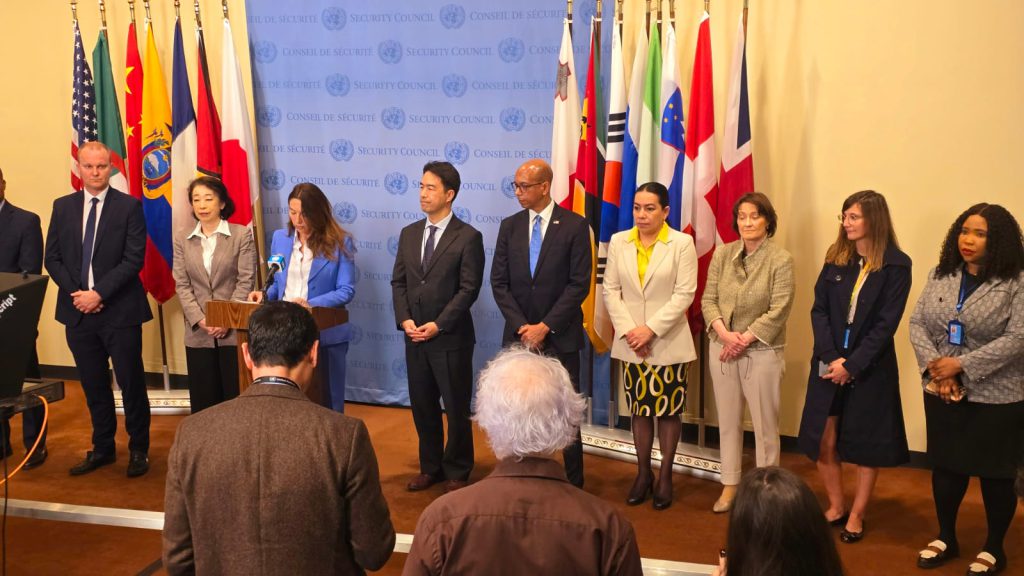We, the Security Council members that have joined the Joint Pledges on Climate, Peace and Security; France, Guyana, Japan, Mozambique, The Republic of Korea, Sierra Leone, Slovenia, Switzerland, the United Kingdom, the United States of America, and my own country Malta, have come together to express deep concern at the climate security challenges facing Yemen ahead of today’s Security Council briefing.
In Yemen, the interlinkages between climate change, peace and security are evident through ongoing environmental degradation, socioeconomic vulnerabilities, and conflict. Environmental stress factors aggravate food and water insecurity, the widespread destruction of infrastructure, and the displacement of communities. The ongoing conflict has further exacerbated these challenges and heightened vulnerabilities among the Yemeni population, increasing strains on the capacity of local authorities and humanitarian organisations to respond effectively.
Yemen is one of the most water-stressed countries in the world. It faces increased temperatures, erratic rainfall patterns, flash floods as well as drought and desertification, exacerbated by the El Niño phenomenon. Depleting groundwater reserves have negatively impacted agricultural lands and posed significant threats to food security and livelihoods.
Despite these adversities, the resilience of the Yemeni people to strive and adapt in the face of such challenges is recognised. In rural communities, women are frequently dependent upon natural and agricultural resources for their livelihoods and to sustain their families. They play a pivotal role in food security and in mitigating tensions over natural resources, including resolving water and land disputes. We highlight the work of Yemeni women-led civil society organisations in this respect, especially in remote and front-line areas.
Addressing such challenges in Yemen demands our immediate attention. We should strengthen our efforts to end conflict and insecurity in Yemen and enhance community resilience amidst the complex socio-economic and political landscape. A coordinated approach is needed to address climate stressors, impacts on biodiversity, and the protracted conflict that has created a vicious cycle of instability. Such an approach should be complemented by measures that promote peacebuilding, while addressing the impacts of climate change and protecting biodiversity.
The Security Council must meet its responsibilities of maintaining international peace and security, by recognising the nexus with climate change, and addressing the full range of conflict risk factors. We stress the importance of dialogue, international cooperation and support which are key in fostering peace, stability and resilience building in Yemen. We also call for comprehensive climate-related peace security risk assessments and for strengthened disaster risk management, including early warning systems.
In overcoming such challenges, we must continue to ensure immediate humanitarian assistance that addresses the urgent needs of the population, particularly women, children, young persons, older persons, minorities, and internally displaced persons, including through providing access to clean water and sanitation, food aid, shelter, and healthcare services. The international community should also continue to promote sustainable and integrated resource management practices, implementing innovative agricultural techniques, enhancing water conservation measures and maritime security, and investing in clean and renewable energy sources.
As Pledge holders, and as Council Members committed to advancing the Climate, Peace and Security Agenda, it remains our priority to effectively develop evidence-based and holistic strategies that address the interconnected challenges of conflict and climate change. Only through concerted and sustained action, fostering national and local ownership, can meaningful progress be made towards building a more sustainable, resilient, and secure future for the people of Yemen.



